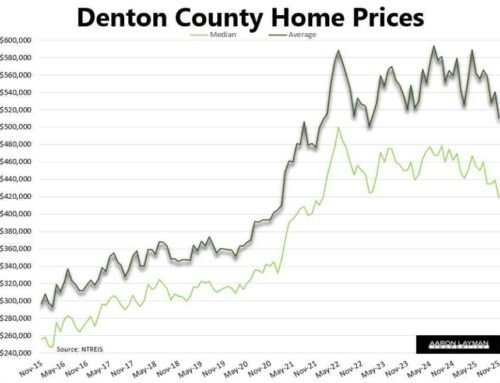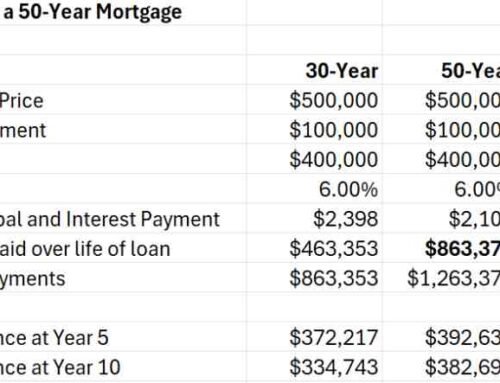As we embrace the new year, and the freezing temperatures that arrived with it, Denton County real estate prices continued to climb higher as sales continue to grow at a measured pace. The housing boom seen during the last 4-5 years has been impressive by any standards. As the Fed continues its much anticipated balance sheet “normalization”, there is a lot at stake for local real estate markets. The U.S. housing market is now heavily dependent on Fed stimulus, in the form of artificially depressed mortgage interest rates, and the artificial “wealth effect” created by the Fed’s bloated balance sheet.
As we ended 2017 the Federal Reserve fell well short of it’s stated goal of $10 billion per month in balance sheet reductions beginning in October. Looking at the past three months, the tape shows the Fed fell short of a $30 billion draw-down by more than half. As we start the first quarter of 2018, it appears the Fed will fall even further behind, particularly since the Fed is supposed to be accelerating its sales of securities with each subsequent quarter until it reaches a combined reduction of $50 billion per month later this year. That means the Fed should be liquidating $12 billion per month of Treasury securities and $8 billion per month in mortgage-backed securities during the first quarter of 2018. Will they really have the stomach to march ahead as planned and sell off $20 billion per month during January, February and March?
As Denton County home prices continue to climb higher, the strain on local budgets continues to grow. Those higher home prices translate to higher monthly mortgage payments and higher property tax bills. It’s not surprising to see local Denton County residents rushing to pre-pay their 2018 property tax bills to beat the new tax “reform” caps set to take effect in 2018. The attempts at pre-payment are an exercise in futility from frustrated homeowners, another unintended consequence of the Fed’s monetary mayhem. In essence, Denton County homeowners are dealing with a a double whammy of two of the most operationally corrupt systems in the U.S…the Texas property tax system and the Federal Reserve.
DFW employment continued to trend higher, not surprising considering the stock market was hitting new highs as we ended they year. With the Fed attempting to shrink its bloated balance sheet, it will be interesting to see how the corporate tax cut stimulus balances with the Fed’s balance sheet normalization process. Dallas area employment has been feeding off the Fed stimulus. What happens when that stimulus goes into reverse is another question.
Most professional economists and real estate pundits continue to call for a soft landing in terms of the local real estate markets. Amazingly many local pundits continue to suggest that DFW home prices are not in a bubble despite evidence to the contrary. (see attached graphic). 2018 could be a banner year for commercial real estate companies with the new tax overhaul. On the consumer side, residential housing markets could be a little more volatile. The cap on itemized deductions is going to hit higher priced DFW homes. If the Fed hikes three more times (as planned), higher rates could create additional headwinds for housing with diminished affordability. So far, the long end of the yield curve suggests the Fed has lost control of that argument.
Regardless of what happens in 2018, it will likely pay dividends to watch what the Fed does rather than what it says. The Fed has a history of deviant behavior. The credibility of Fed officials has declined about as fast as the popularity of Congress. The scrutiny is well deserved. 2018 will likely bring the Fed’s faithful service to Wall Street, and the criminals who are running it, into full view for the American public to see in all it’s glory. My advice to prospective home buyers and sellers in Denton County is to proceed with caution.
“After nearly a decade of imposing its unique brand of price controls over the cost of money, the Fed admittedly is not willing to do that which is in the best interest of the general public and continues to adhere to policies that favor their primary constituents, the big banks and major corporations.” Michael Lebowitz













Leave A Comment